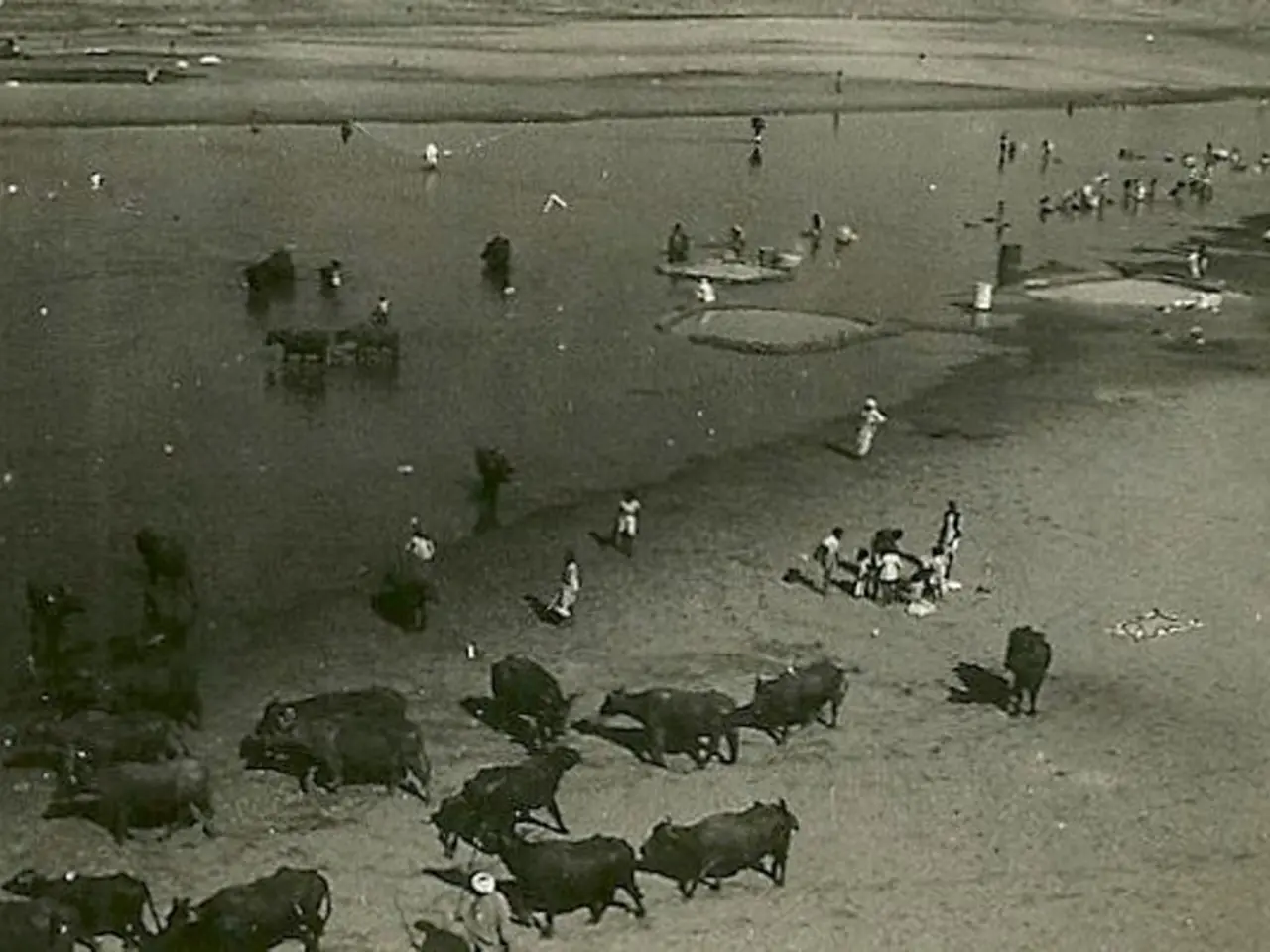Merz and Pistorius aim for German dominance within NATO leadership
In response to the ongoing conflict in Ukraine and the heightened geopolitical tensions, Germany has reaffirmed its role within NATO and significantly increased its defense spending. Key developments include:
1. **Defense Spending Boost**: Germany plans to more than double its military spending over the next five years, with €649 billion earmarked for defense between now and 2029. The aim is to reach 3.5% of GDP by 2029, a significant increase from the current 2.4%.
2. **NATO Spending Targets**: Germany has pledged its support for NATO's new target of spending 5% of GDP on defense and security-related activities by 2035. Chancellor Friedrich Merz has emphasized the country's commitment to reaching its specific target of 3.5% ahead of schedule.
3. **Aid for Ukraine**: Germany has also committed to providing significant aid to Ukraine, marking a substantial increase in its role as a key supporter of Kyiv. This includes an annual provision of €9 billion.
The Russian invasion of Ukraine has played a significant role in Germany's decision to strengthen its defense and NATO commitments:
- **Geopolitical Shifts**: The conflict has underscored the need for stronger military preparedness and solidarity within NATO, prompting Germany to reassess its defense priorities and contribute more substantially to collective security efforts.
- **Renewed Focus on Defense**: The historic shift in Germany's defense spending and its commitment to meeting new NATO targets reflect a response to the geopolitical uncertainties exacerbated by the conflict. This includes addressing security threats such as resurgent Russian aggression and cyberattacks.
- **Leadership Role**: By assuming a more prominent role in supporting Ukraine and enhancing NATO capabilities, Germany aims to demonstrate its commitment to European security and stability in the face of ongoing Russian aggression.
Chancellor Merz has also promised further support for Ukraine to improve air defense, with corresponding offers for air defense systems that could be implemented from Germany. Additionally, Merz has been in good exchange with US President Donald Trump on the issue of Ukraine's air defense.
The NATO summit held recently in The Hague set a goal of spending five percent of its GDP on defense in the future. Defense Minister Boris Pistorius shares similar views, stating that Germany will lead the way in assuming more responsibility within NATO. The alliance has set a sign of unity and determination in historic times. With West Germany becoming a member of NATO on May 6, 1955, and today the alliance having 32 member countries, with Sweden and Finland being the latest additions due to the Russian attack on Ukraine, the future of NATO appears to be a key focus for Germany's foreign policy.
- Germany's increased defense spending and commitment to reaching NATO's target of spending 5% of GDP on defense and security-related activities by 2035 is a direct response to the geopolitical tensions and war-and-conflicts, particularly the Russian invasion of Ukraine.
- In light of the ongoing conflict in Ukraine, politics and general news have seen a significant shift in Germany's approach to defense and NATO, with the country pledging to provide substantial aid to Ukraine and reaffirming its role within the alliance, including leadership in enhancing NATO capabilities and air defense systems.








